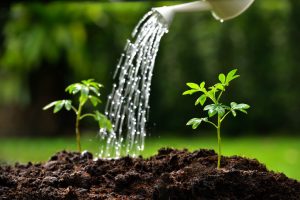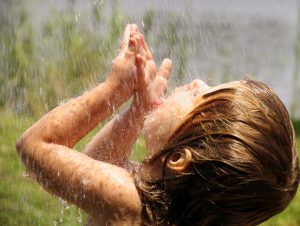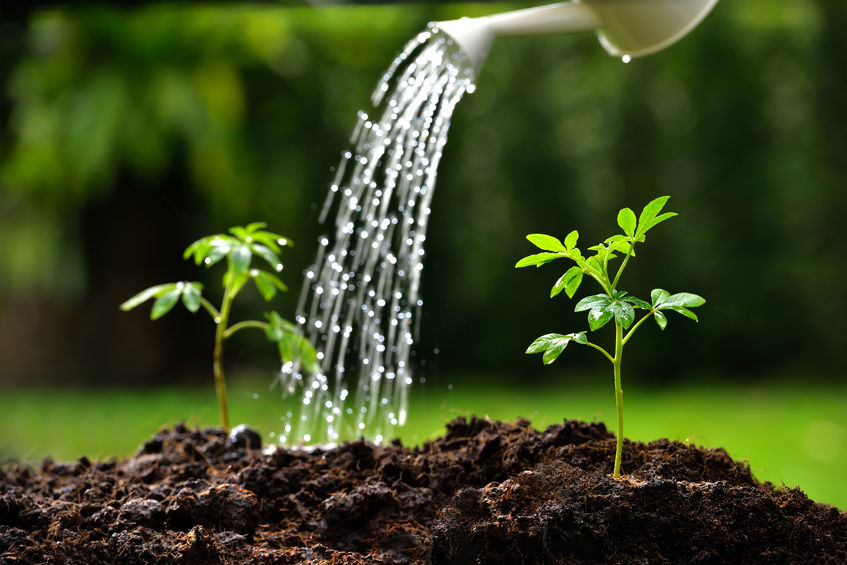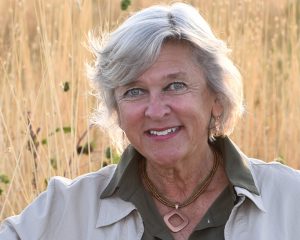Create A Mind That Has Many Branches
A compassionate child requires being watered knowledge so they will grow and thrive in wisdom and good judgement. Knowledge, like water, is important to create and sustain a healthy and enriching life. Once a seed is planted in a child, water it. We know nothing can live without water. Without knowledge, it is difficult for compassion to survive and perpetuate.

I remember visiting my grandmother, my mother’s mom, on a farm in Wisconsin. On the wall in the entry way was an oval framed picture, in sepia, of a little boy around 6 years old standing in front of a plain background. He was wearing bloomer type pants covering just below his knees, a shirt, and a cap. I learned that this boy’s name was Sigvald. He was my mom’s oldest brother that she never met. He died of meningitis before he was eight years old.
It took a long time before my grandparents were able to conceive another child, that being my mother. Shortly after her birth, they had another son, my uncle.
Back in the 1900’s when my mother and her siblings were born, bacterium called Haemophilus influenzae type b (Hib) was a common cause of meningitis in young children. At that time, Hib vaccine was not available for infants. Vaccines have worked so well, it’s easy to forget about how dangerous Haemophilus infections, polio, or even chickenpox can be to a person.
The miracles and advance we have made in science with vaccinations over the years is remarkable. Some new parents today question the need for vaccinating their babies. Questioning is good. But ensure you get the knowledge to make the right decision.
COVID-19, in the 2020-2021’s, has been a reality check of how quickly an uncontrolled disease can spread, taking lives. Knowing the facts of the past can help us be more prepared. What did we learn from the Spanish flu pandemic that occurred around a hundred years prior to COVID-19, in February 1918 to April 1920? It infected 500 million people, which at that time was about a third of the world’s population. How long will we remember the impacts of COVID-19 pandemic and will be retain what we learn to help control and manage any future pandemics, even knowing we will not be around?
Why are books banned from children’s school curriculum, preventing knowledge from being sprinkled in the minds of our children? There are some banning of books that make sense if the content isn’t age appropriate due to sexuality, profanity, and violence of the material. At the same time, there is literature that may not be politically or racially acceptable in today’s society, describing incidences of the past. Wouldn’t it be better to be allowed to read, discuss, and understand what happened in the past?
We cannot change history or the violence, corruption, and wrong doings to people of different gender, race, or social class. We need to understand the setting and timeframe, what were the circumstances surrounding it, and what knowledge did the people have at that point of time. This discussion increases understanding of great injustices to humankind and to help ensure we don’t repeat the mistakes of the past.
Hurtful topics should not be avoided but discussed. Knowledge is powerful. Knowledge reduces fear. Knowledge leads to greater understanding which can also lead to a more compassionate human race.
A child may see another child who is dirty, smells badly, and wearing old, worn out clothes. They may not have the knowledge that everyone may not have what their parents are able to provide to them. A child may not understand why a classmate is reluctant to share a sandwich at lunch. It might be the only meal of the day that classmate will enjoy eating.
I know a family who has six children. They eat dinner together and discuss topics from what they learned that day, to what is happening in our community, our nation, our world? They talk religion and about feelings and encourage the children to voice their questions, concerns and ideas. What a great example of positive family interaction. Knowledge through discussion with concerned, responsible adults is invaluable.
Another important part of knowledge is to obtain it from multiple and diverse resources. Don’t rely on the one source that lines up with your current beliefs. Be open minded and teach your child to do the same. It’s possible we don’t know everything, or our sources are way off. Get the big picture. See it from a different perspective. Be like a tree branching out into many directions.
Today we have easy access to information through many social media sources. Just because something is written or posted, doesn’t make it true. This ease of communication can have negative effects.
It reminds me of the children’s game of telephone where a person starts with a message that is passed on down the line to another child. The message is whispered into the next person’s ear. The child at the end of the line, which may be the 10th child, repeats what they heard. It usually isn’t even close to what the original person stated. And now we have the power of technology to proliferate those messages and get them out so much faster and to more people exponentially.

Don’t just sprinkle your child with knowledge but douse your child with knowledge. Expose them to different situations, religions, and cultures. Bring them to a place where they can help distribute soup and sandwiches. Have them help at a food bank. Attend different cultural events in addition to your own heritage. Study your own heritage. Learn about your roots, the soil that you were grounded. Learn, and keep learning and teach your child how to gain knowledge. Teach them to read, research, assess, and feel comfortable in discussions and engage in productive debates. This is what helps create a compassionate child with strong roots. Don’t just sprinkle them with knowledge, pour it on them!
This is the third in the series of DIG IN, Steps to Cultivate Compassion in Children. The others are: 1) Let’s Talk Dirt 2) Plant Perennial Seeds of Compassion That Grow Deep Roots.
Sonja Wendt
- Enhancing children’s sensitivity in human interactions one story at a time.
- Author and Reading & Seeding Leader
- Cultivating Compassion in Children Books Series
- https://sonjawendt.com/
- Books Available on Amazon: http://bit.ly/SonjaLangeWendt
©2021 sonjalangewendt


Comments are closed.